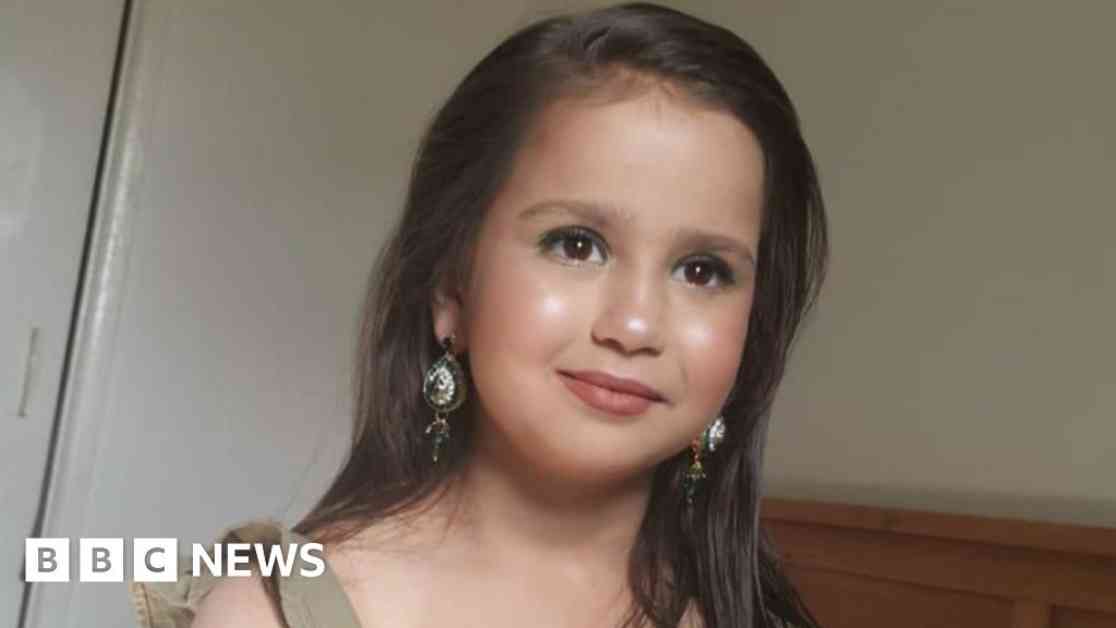In a heartbreaking turn of events, the tragic story of Sara Sharif, who fell victim to unspeakable cruelty at the hands of her father and stepmother, culminating in her murder in 2023, has recently taken a new legal twist. Three judges who presided over Family Court hearings involving Sara Sharif in the years leading up to her untimely death can now be named following a legal appeal. Sara’s father, Urfan Sharif, and her stepmother, Beinash Batool, have been sentenced to life in prison for the heinous crime that took Sara’s life in Woking, Surrey.
After the convictions of Sara’s father and stepmother, the media were granted permission to disclose details from previous Family Court hearings related to Sara’s care prior to her tragic demise. However, a High Court ruling initially prevented the media from revealing the identities of the three judges who were involved in the case: Judge Alison Raeside, Judge Peter Nathan, and Judge Sally Williams.
The High Court justified the decision by citing a “real risk” of harm to the judges from a potential “virtual lynch mob.” Nevertheless, media organizations, including the BBC, successfully contested this ruling, emphasizing the importance of public scrutiny in the judicial process.
Sir Geoffrey Vos, the most senior civil judge in England and Wales, expressed his agreement with the media’s position, stating that the practice of anonymizing judges was “misguided.” As a result, the judges can now be named, shedding light on their roles in the legal proceedings surrounding Sara Sharif’s tragic case.
Judge Alison Raeside was a central figure in the Family Court hearings concerning Sara Sharif, from the earliest stages of involvement with the family, even before Sara was born. The court first became aware of Sara’s existence when she was just six days old, as Surrey County Council sought an interim care order for Sara and her siblings due to concerns about their safety and well-being.
Despite alarming reports of inadequate supervision, unexplained injuries, and a history of domestic abuse within the family, Judge Raeside opted for an interim supervision order rather than removing the children from their parents’ care. This decision set the stage for a series of subsequent legal proceedings that would tragically culminate in Sara’s death.
The narrative of Sara Sharif’s tumultuous family life continued to unfold in the courtroom, with Judge Peter Nathan and Judge Sally Williams playing pivotal roles in subsequent hearings. The court grappled with escalating concerns of harm and abuse within the family, leading to temporary foster care arrangements and supervised access for the children.
Amidst a backdrop of domestic violence, custody disputes, and shifting allegiances within the family, the judiciary faced challenging decisions that ultimately failed to protect Sara from the fate that awaited her. The complexities of family law, coupled with the inherent limitations of legal intervention in matters of abuse and neglect, underscore the tragic consequences that can arise when safeguarding vulnerable individuals falls short.
As the legal system grapples with the aftermath of Sara Sharif’s case, questions arise about the efficacy of judicial interventions in safeguarding at-risk individuals and families. The recent naming of the judges involved in Sara’s case has sparked debates about the balance between privacy and public accountability in family court proceedings.
In light of the increased threats and risks faced by judges, Chief Justice Baroness Carr has announced the formation of a “security task force” to address mounting concerns about the safety of judicial officers. The move comes at a time when incidents of harassment and intimidation targeting judges have become alarmingly common, highlighting the urgent need for enhanced security measures.
As the legal landscape continues to evolve, the tragic story of Sara Sharif serves as a poignant reminder of the complexities and challenges inherent in family court proceedings. The quest for justice and accountability must be tempered with compassion and empathy for the victims of abuse and violence, whose voices often go unheard in the corridors of power.













